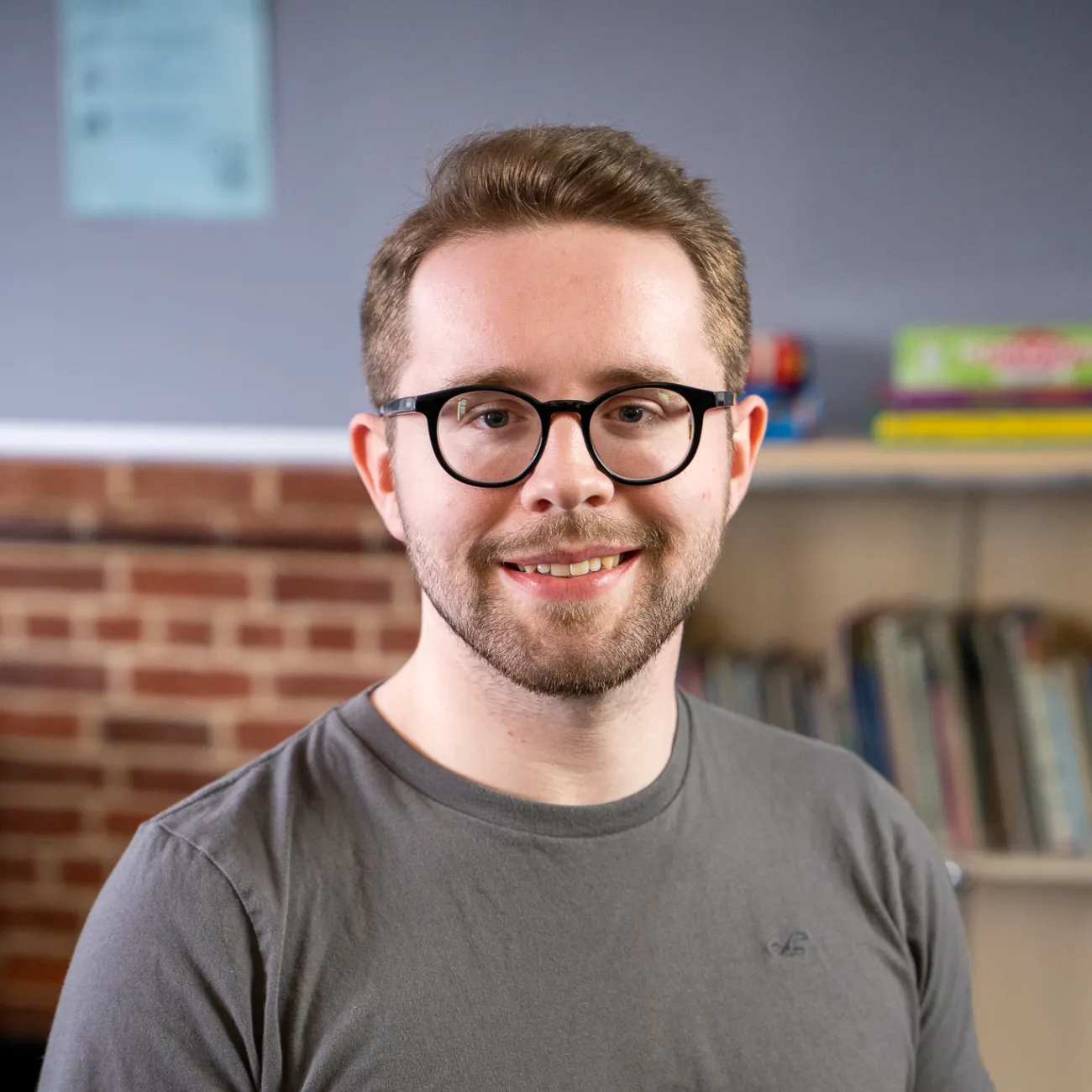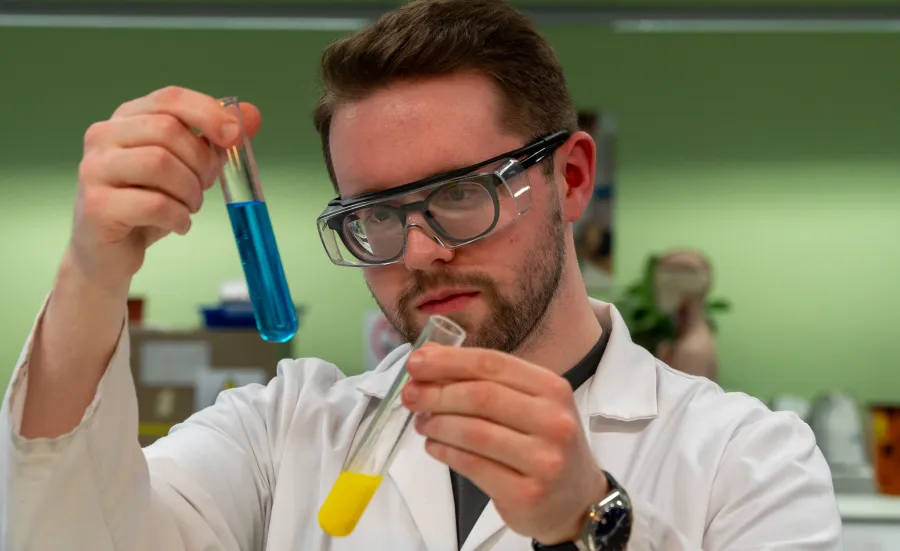From his own schooldays, Nick remembers the impact a good science teacher can have on their pupils, and helping children do their best in science subjects was high on his list of reasons to do a PGCE.
When he made the leap from a job in forensic science to teacher training, he evaluated potential PGCE courses carefully and liked what Southampton had to offer.
As well as the University’s own ‘outstanding’ Ofsted rating, Nick was impressed by the quality of the placement schools. “I looked at the partner schools and what they offered; there were some really good Ofsted assessments and they looked like schools that would fit in with how I’d like to teach."
Another factor was the proportion of time given to placements. “In my previous professional life I did a lot of learning on the job and I know that’s the best way to learn. It’s in schools that we hone the craft and learn how to teach effectively.”
The structure of the PGCE enabled Nick to develop his skills and confidence with a month of university-based training and workshops before going into the classroom. “As someone with no specific classroom experience, that time was really helpful.”
Dedicated science lab facilities
Practical tests and experiments are an integral part of secondary science teaching. With a dedicated PGCE science lab at the University, Nick and his cohort have the chance to give experiments a practice run before doing them ‘live’ in class.
“The lab is set up to replicate what you’d have access to in a secondary school, with the same sort of table layouts, gas taps, chemical storeroom and so on. It’s good to have time to go through the practicals and get advice from experienced tutors on the best ways to set them up and carry them out.”

Making the most of feedback and support
The course is taught by specialist subject tutors at the university, with mentors providing support on school placements. Nick is making sure he absorbs as much of their knowledge and experience as he can.
“Our tutors are always very reachable, whether it's at our Friday sessions on campus or by email. We’re encouraged to ask them about any queries or issues we’ve got, and everyone on the science cohort takes them up on that.
“Both my placement schools are really good schools with fantastic science departments. It’s very collaborative and everyone’s willing to share tips and resources. I feel I’ve been able to develop quickly because of the staff support. They give really tangible feedback that you can take on board and work on to develop your classroom skills.”
We get the opportunity to shadow, observe, and take lessons with many different teachers. As trainees, part of our job this year is to be a sponge and take in as much as we can.
Nick Lamprell, PGCE Sciences.
A PGCE science community
All of Southampton’s secondary PGCEs are taught in subject-specific cohorts, and Nick has found the weekly sessions with his fellow science trainees a helpful source of support.
“We can do some reflection and discuss what we’ve experienced in the week. There’s a lot of camaraderie because everyone’s in the same position, and we can share advice and resources. It mirrors the kind of ideal collaborative environment you’d have within a school.
“It’s a demanding year so being able to voice that with people who are experiencing the same thing is a really good way to de-stress at the end of each week.”
Nurturing potential
Remembering how much impact his own science teachers had on him, Nick is excited about going into a career where he can make a difference. “Helping people to understand and do their best in science has always been a big thing for me.”
Having secured a job at his placement school for September, he is well on the way to achieving that aim.
